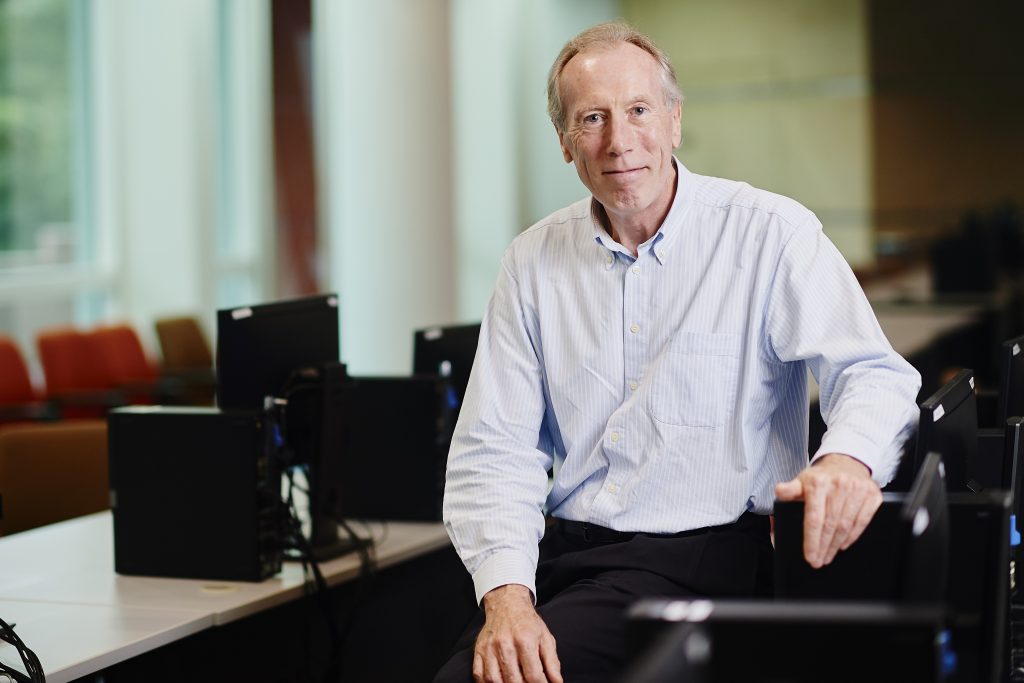NUS-ISS offers a ‘smart’ and stackable route to designing and building intelligent systems

From having a personal assistant on hand to controlling various appliances in your home with a single device, there’s no denying that life has been made easier by the advent of smart technology. And it’s all thanks to artificial intelligence (AI).
“AI is a broad term that refers to any type of computer software that engages in human-like activities, including learning, planning and problem-solving,” says Dr Barry Adrian Shepherd, chief of the Master of Technology (MTech) in Intelligent Systems programme at the National University of Singapore’s Institute of Systems Science (NUS-ISS).
“It has the potential to vastly change the way humans interact with the digital world, and will have a major impact on the types of work and jobs that people do in the future.”
Launched in January 2019, the postgraduate programme that Dr Shepherd helms focuses on concepts, techniques and methods of AI, and how they are applied to daily life. Participants are trained to apply their knowledge to a variety of areas, including robotics, and autonomous vehicles.
Working professionals can earn an MTech degree through the NUS-ISS Stackable Graduate Certificate Programme in Artificial Intelligence, which provides students with the flexibility of taking modular courses at their own pace. The courses are categorised into six main topics — intelligent reasoning systems, pattern recognition systems, intelligent sensing systems, intelligent software agents, intelligent robotic systems and practical language processing — each one equivalent to a graduate certificate.
“To obtain an MTech degree, a student needs to successfully complete four of these certificates and a capstone project,” explains Dr Shepherd.
“Each certificate comprises a set of three or four short courses which, taken together, are designed to provide the skills for a specific job role.”
For instance, a student who takes a set of three integrated short courses on intelligent sensing systems will gain the required skills of a vision system architect.
The stackable route, which can be completed over a period of seven years, gives working professionals the flexibility to upgrade their skills. Alternatively, students can opt to complete the programme the traditional way: two years part-time or one year full-time.
Dr Shepherd says one should expect a challenging but rewarding learning journey when they enter this programme.
“The fields of AI and machine learning are huge. What we teach are the core essentials that will start you on your learning journey.”
Article was written by Gel Cabotaje and first appeared in the Sweet Spot supplement of The Straits Times here.